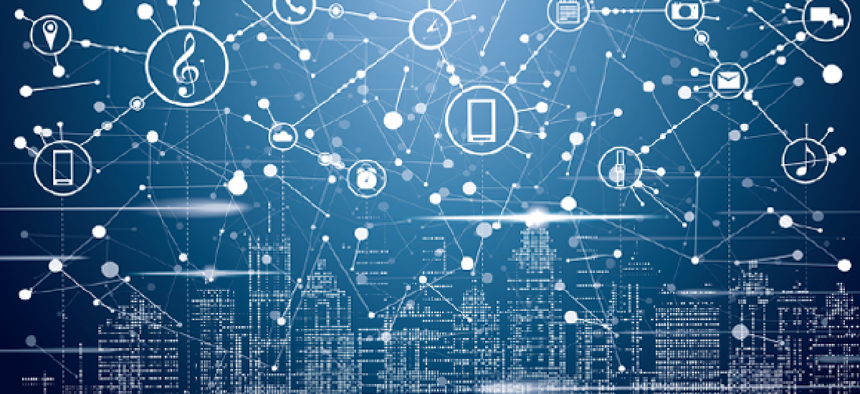5 use cases for smart city IoT

A new white paper from Georgia Tech dives into IoT technology for municipal services, utilities, public safety, transportation and health care.
Cities across the world are running internet-of-things pilots to gain insights that will them run more efficiently. A new white paper from the Georgia Institute of Technology's Center for the Development and Application of Internet of Things Technologies takes an exhaustive look at promise of these burgeoning technologies.
The paper, “Driving New Modes of IoT Facilitated Citizen/User Engagement,” dives into multiple aspects of IoT technology including implementation, data ownership, security, business models and road maps. Five use cases are used to highlight the different opportunities and challenges of connected devices: municipal service management, utilities, public safety, transportation and health care. Each of these areas has its own considerations for IoT planning and execution, the report said.
1. Municipal services management. IoT technology could provide novel ways to engage with citizens and improve effectiveness and efficiency with IoT-based data collection and analysis. However, cities must prioritize safeguarding privacy and ensuring the security of these systems to realize the benefit.
2. Utilities. Internet-connected sensors and intelligent back-end systems can provide real-time information to create more efficient, responsive systems. Berkeley County, S.C., for example, uses IoT technology to read water meters, reducing the labor required to check meters and providing insight into data usage patterns. Broad implementation may be difficult, however, considering the disparate nature of utility infrastructure and the need to provide power to IoT devices. Utilities must look at pushing technology to the network edge to overcome some of these obstacles and take advantage of cloud computing.
3. Public safety. With the roll out of FirstNet, the first responder community will have access to a dedicated public safety network that can support IoT devices that allow responders to quickly share data and help inform decisions. As IoT-based public safety applications are developed, cities must consider the privacy of citizens, the report said.
4. Transportation. Many cities have already begun working on transportation-based IoT projects, installing sensors to collect data to optimize traffic and parking, facilitate better energy management and ensure the safety of traffic and pedestrians.
5. Health care. IoT technologies can improve the operational efficiency of health care facilities and through telemedicine and telehealth increase access to health care to in rural areas. Because health data has become a major targets of cyber criminals, health care providers must be aware of their vulnerabilities and have a clear understanding of the devices on their network.
Read the full report here.





